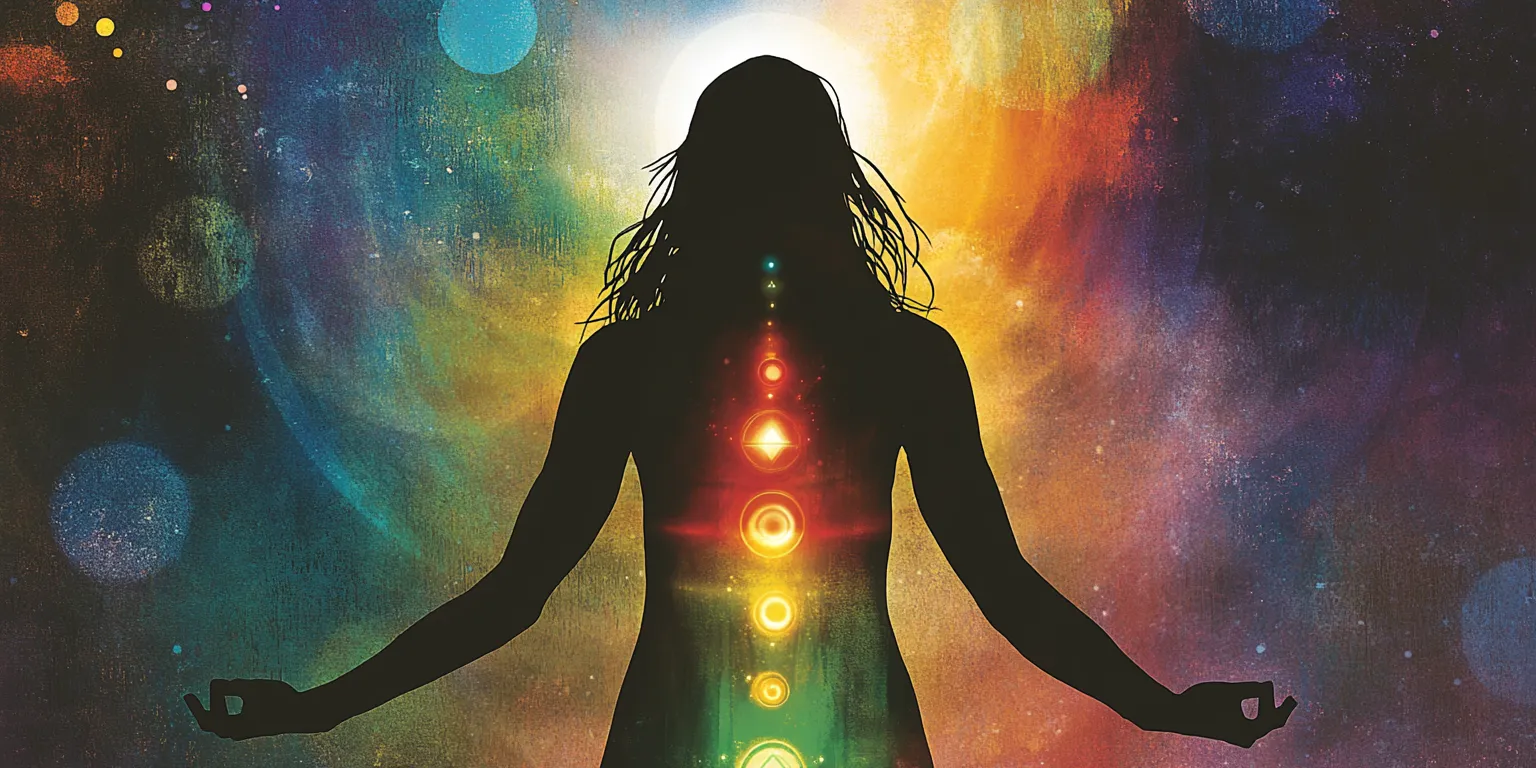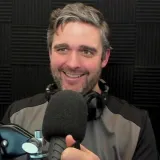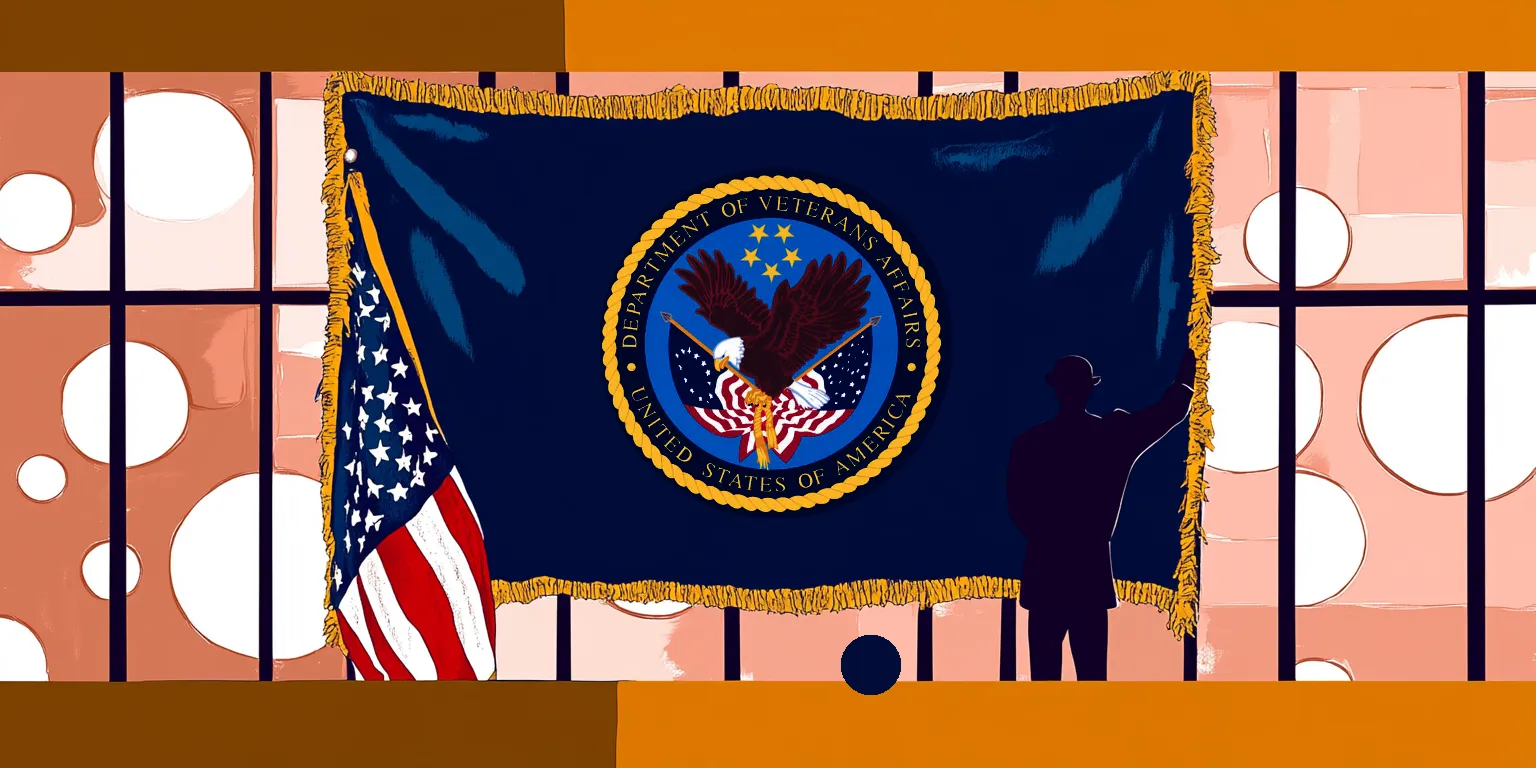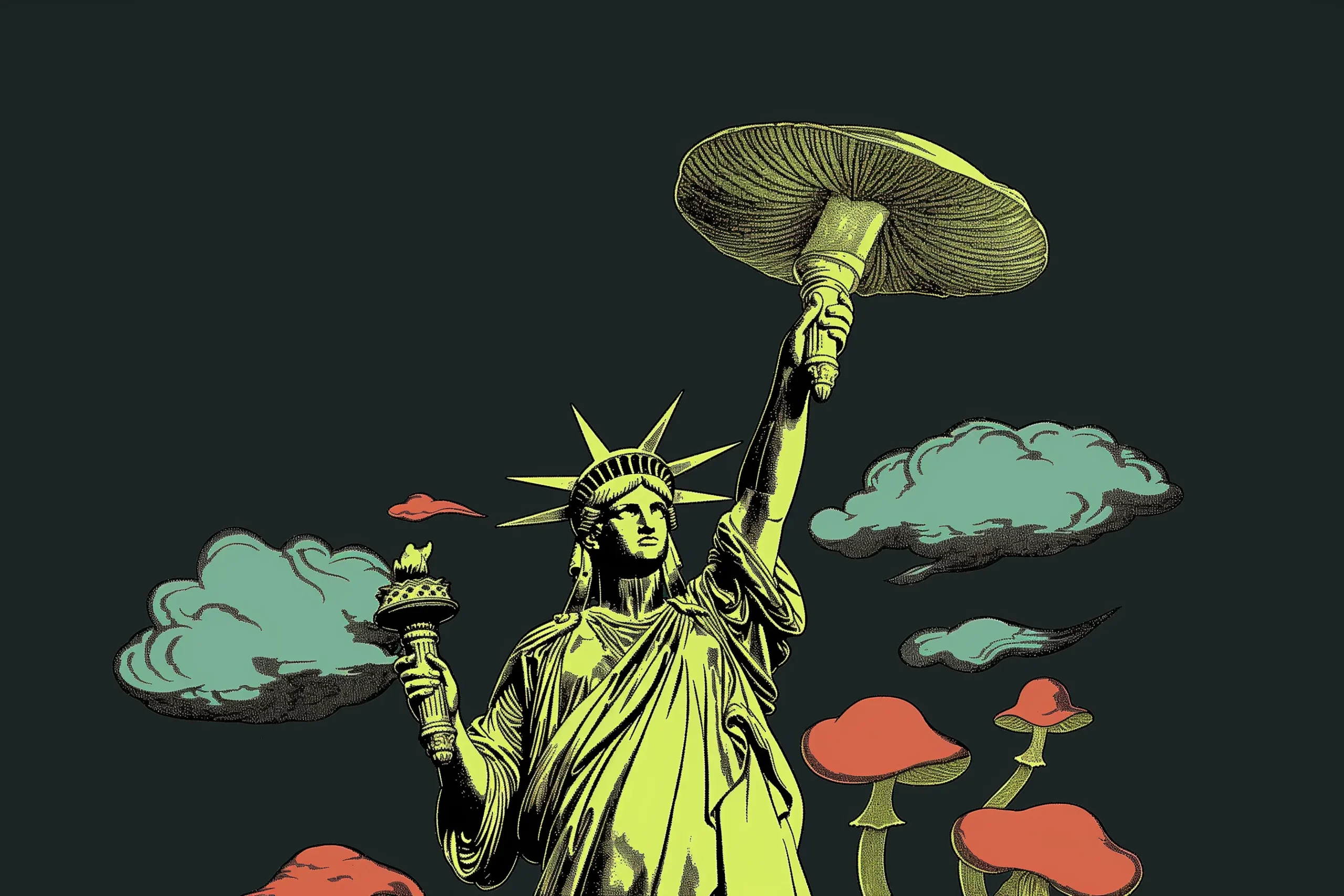In this week’s Psychedelic News Roundup, we examine a series of congressional and legal wins for the psychedelic industry and their impact on the future of the psychedelic renaissance. Other news includes one scientist’s VR-powered research and a Massachusetts town joining the movement.
Ukrainian Military Trials Ibogaine for Traumatic Brain Injuries

Originally run by the Intercept, The Ukrainian military is experimenting with ibogaine, a psychedelic drug, to treat traumatic brain injuries (TBI) and enhance battle readiness. In an unprecedented move, the military is collaborating with Irvin Dana Beal, a prominent figure in the Yippie movement and an advocate for ibogaine, who recently traveled to Ukraine to initiate the project.
Ibogaine, banned in the U.S. but used elsewhere for opioid use disorder, is being considered for its potential benefits in TBI treatment. Beal, alongside Ukrainian military psychologist Oleksii Skyrtach, is working to provide Ukrainian soldiers with this drug, both on and off the battlefield. The project aims to address the urgent need for alternative treatments for “battlefield burnout” and TBI, moving away from traditional amphetamines, which pose significant health risks.
The drug’s effects on TBI, as well as on battle readiness, are being explored through low-dose administration. Beal and the research team believe that microdosing ibogaine can positively affect traumatic brain injury and enhance soldiers’ performance without the adverse effects associated with amphetamines, such as premature aging.
Keep Up with Uncensored Psychedelic Trends
Join our newsletter at Psychedelics Uncensored.
We respect and protect your privacy. By subscribing your info will be subject to our privacy policy . Unsubscribe easily at any time
A recent study published in Nature Medicine found promising results for ibogaine in treating TBI. Despite its Schedule I status in the U.S., this research could pave the way for new treatments. The Ukrainian military, facing the aftermath of the war and the influx of veterans with PTSD and TBI, sees this as a critical initiative.
Rick Doblin of the Multidisciplinary Association for Psychedelic Studies (MAPS) is supporting the project, which involves sourcing medical-grade ibogaine from Africa. MAPS is also pushing educational programs on MDMA and PTSD for Ukrainian therapists in Poland and interested Polish therapists, aiming to treat Ukrainians suffering from PTSD.
Ibogaine’s potential advantages in pattern recognition and coincidence detection, crucial for battlefield situations, are being evaluated. This experiment, if successful, could offer an alternative to traditional stimulants used in military settings, providing a neuroprotective and rejuvenating option for soldiers.
Beal’s involvement in this project follows his advocacy for psychedelic treatments, including challenges to political figures on drug-related issues. Despite recent challenges, including a reported arrest, Beal remains committed to promoting ibogaine’s therapeutic potential, particularly in military contexts.(1)
Keep Up with Psychedelic Trends
Get uncensored psychedelic news, events, and updates. Join Psychedelics Uncensored!
We respect and protect your privacy. By subscribing your info will be subject to our privacy policy . Unsubscribe easily at any time
Stanford Study Shows Significant Benefits of Ibogaine for Veterans with TBI

In a story similar to the new Ukrainian ibogaine initiative, Marijuana Moment details a groundbreaking study from Stanford University, published in Nature Medicine, revealing dramatic improvements in military veterans with traumatic brain injuries (TBI) following treatment with the psychedelic ibogaine. The research followed 30 U.S. military veterans functionally disabled from TBI symptoms such as PTSD, depression, and anxiety, all with a history of repeated blast or combat exposures.
Conducted in collaboration with VETS, Inc., the study assessed these veterans before and after they received ibogaine treatment at a clinic in Mexico. The results were profound, showing a remarkable reduction in mental health symptoms with minimal side effects. Post-treatment, the veterans exhibited significant improvements in functioning and a dramatic decrease in PTSD, depression, and anxiety symptoms, sustained over time.
Prior to treatment, all veterans met the criteria for clinically significant levels of disability, with many experiencing severe mental health challenges, including PTSD, anxiety disorder, alcohol use disorder, and suicidal tendencies. After ibogaine treatment, their average disability rating significantly dropped, and cognitive assessments indicated improvements in concentration, information processing, memory, and impulsivity.
Associate Professor of Psychiatry and Behavioral Sciences at Stanford, Nolan Williams, emphasized the unparalleled impact of ibogaine in alleviating functional and neuropsychiatric symptoms of TBI. The study’s findings suggest ibogaine’s potential as a powerful therapeutic agent for various psychiatric symptoms following TBI and repeated exposure to blasts and combat, including suicidality.
The research has sparked increased interest in exploring ibogaine’s therapeutic potential, leading to the DEA proposing a significant increase in the production quota for ibogaine in 2024. Furthermore, the U.S. Department of Veterans Affairs has called for more in-depth research on psychedelics like psilocybin and MDMA for treating PTSD and depression.
This study represents a potential paradigm shift in treating chronic disability related to TBI from combat exposures. The Stanford team plans further research, including incorporating brain scans, to deepen understanding of ibogaine’s effects on cognition and explore its broader applications in neuro-rehabilitation and treatment of PTSD, anxiety, and depression not linked to TBI.
California Panel Delays Psychedelic Research, Frustrating Scientists

As detailed by the LA Times, a California state panel responsible for monitoring research on federally restricted drugs and addiction treatment has become a source of frustration for scientists studying psychedelics. Established over fifty years ago, the Research Advisory Panel of California has been holding up numerous studies due to public meeting requirements, leading to a backlog of research proposals.
At the Pacific Neuroscience Institute in Santa Monica, researchers like Dr. Keith Heinzerling are eager to explore psychedelics for treating depression and other mental health conditions. However, their work is stalled, as the panel has oversight over such studies and hasn’t met since August 2023. The situation has led some researchers to call for the panel’s dissolution, arguing that it’s an unnecessary and outdated hindrance to important research.
The panel is meant to ensure safety and scientific value in controlled substance studies, but its inability to convene has caused delays in launching and conducting critical research. Scientists at institutions like UC San Francisco and the Lundquist Institute at Harbor-UCLA Medical Center have expressed concerns about the impact of these delays on research into treatments for conditions like anorexia, PTSD, and end-of-life anxiety.
Many scientists argue that the rigorous scrutiny from institutions like the FDA and NIH renders the California panel redundant. The panel’s backlog delays studies, leading to additional costs, and could potentially exclude California from multi-state trials of emerging treatments.
Despite the frustration, not all researchers advocate for the panel’s elimination. Some acknowledge its value in providing an extra layer of regulatory oversight. However, the current impasse highlights a need for reform to ensure that vital research into psychedelics and addiction treatment can proceed without unnecessary delays.(2)(3)
MDMA’s Role in Enhancing Self-Experience for PTSD Treatment

Published in Psychology Today, a new study on the impact of MDMA on self-experience, particularly for individuals with posttraumatic stress disorder (PTSD), is garnering increasing interest in psychotherapy. A recent study discussed by Monica Vilhauer explores this topic, highlighting the potential benefits of integrating MDMA into psychotherapy for PTSD patients.
The sense of self, crucial in psychotherapy, is often disrupted in PTSD sufferers, leading to issues like alexithymia (difficulty in identifying and describing emotions) and a lack of self-compassion. The study, conducted by researcher Van der Kolk and his team in 2024, examines the effects of MDMA-assisted therapy on PTSD and self-experience. MDMA, known for stimulating senses and enhancing emotions and empathy, has shown promise in helping PTSD patients process traumatic events more effectively.
In this study, participants received 36 hours of psychotherapy, with half also undergoing three 8-hour sessions with MDMA. The findings were striking: those receiving only psychotherapy continued to struggle with self-compassion and emotional regulation. In contrast, the MDMA group showed significant improvements in self-awareness, self-compassion, and emotion regulation, leading to a reduction in PTSD symptoms.
The study underscores the importance of effectively exploring the sense of self in psychotherapy, particularly for PTSD sufferers. Trauma can alter self-experience, as reflected in changes in the brain’s default mode network (DMN) functionality. The inclusion of MDMA in psychotherapy could open pathways for those with severe trauma reactions, emphasizing the centrality of altered self-experience in trauma-related outcomes.
Despite these promising results, it’s crucial to remember that MDMA is not yet a legally available substance for therapeutic use, unlike treatments like ketamine. The study’s authors stress that such substances should only be used for therapeutic purposes under the guidance of well-trained and experienced therapists. This research provides significant insight for psychotherapists working with trauma, whether or not they are psychedelic-trained practitioners, highlighting the potential of MDMA to enhance the psychotherapeutic process in treating PTSD.(4)
UFC Removes Marijuana from Banned Substances List

As reported by Marijuana Moment, the Ultimate Fighting Championship (UFC) has announced a significant policy change, formally removing marijuana from its list of banned substances for professional fighters. This decision, announced on December 29, 2023, aligns with the organization’s aim for an effective and progressive anti-doping program in professional sports.
Despite the World Anti-Doping Agency (WADA) still categorizing cannabis as a banned substance, UFC has decided to diverge from this stance. This shift builds on a 2021 policy change in UFC, where fighters were largely protected from penalties for testing positive for THC, the main psychoactive compound in cannabis.
UFC Chief Business Officer Hunter Campbell emphasized the organization’s commitment to maintaining a leading, independently administered drug-testing program that ensures fair and equal competition conditions. The revised anti-doping policy, which will also see a partnership with Drug Free Sport International (DFSI) for sample collection and shipping, took effect on December 31, 2023.
Jeff Novitzky, UFC’s Senior Vice President of Athlete Health and Performance, highlighted that the anti-doping policy is dynamic and will continue to evolve based on solid scientific evidence to protect UFC athletes better.
This change in UFC reflects a broader trend in sports organizations adjusting their marijuana policies amid ongoing state legalization movements. For example, the National Collegiate Athletic Association (NCAA), the National Basketball Association (NBA), Nevada sports regulators, and the National Football League (NFL) have all made moves to amend their cannabis testing policies. These changes are in response to evolving perceptions of cannabis, particularly its therapeutic potential, and the growing number of states legalizing the plant.
The recent policy shifts also come in the wake of criticism towards WADA for its ongoing cannabis prohibition. Advocates and sports entities have been vocal about the need for reform, especially following high-profile cases like that of U.S. runner Sha’Carri Richardson, who was suspended from Olympic events due to a positive THC test in 2021. This incident spurred calls from the U.S. Anti-Doping Agency, the White House, President Joe Biden, and lawmakers for an overhaul of international marijuana rules in sports.(5)
Could Ukraine’s new Ibogaine initiative be the first true test of psychedelic medicine in battle-weary veteran populations? These new developments, along with the other stories we covered here, provide us with a glimpse of the future of psychedelic medicine and give us hope for both healing and increased personal freedom. From the UFC’s decision to reverse their ban on cannabis use to the latest MDMA and Ibogaine studies from renowned institutions, the future of psychedelic medicine seems bright.
Sources

1. Grim, R. (2024, January 17). The Ukrainian Military Is Experimenting With Psychedelic Drug Ibogaine to Treat Traumatic Brain Injuries. The Intercept. https://theintercept.com/2024/01/17/ukraine-military-psychedelic-drug-ibogaine/
2. Jaeger, K. (2024, January 11). Military Veterans Who Received Psychedelic Ibogaine Treatment Saw “Dramatic” And “Life-Changing” Improvements In PTSD And Depression, Stanford Study Finds. Marijuana Moment. https://www.marijuanamoment.net/military-veterans-who-received-psychedelic-ibogaine-treatment-saw-dramatic-and-life-changing-improvements-in-ptsd-and-depression-stanford-study-finds/
3. Twitter, Instagram, Email, & Facebook. (2024, January 18). A California panel is holding up studies on psychedelics. Some researchers want it gone. Los Angeles Times. https://www.latimes.com/california/story/2024-01-18/california-panel-holding-up-studies-on-psychedelics-addiction-treatment
4. The Impact of MDMA on PTSD and Self-Experience | Psychology Today. (n.d.). Www.psychologytoday.com. Retrieved January 18, 2024, from https://www.psychologytoday.com/us/blog/arts-and-health/202401/the-impact-of-mdma-on-ptsd-and-self-experience
5. Jaeger, K. (2023, December 29). UFC Formally Removes Marijuana From Banned Substances List For Professional Fighters. Marijuana Moment. https://www.marijuanamoment.net/ufc-formally-removes-marijuana-from-banned-substances-list-for-professional-fighters/
This material is not intended as a replacement or substitute for any legal or medical advice. Always consult a medical professional about your health needs. Psychedelics are widely illegal in the United States, and readers should always be informed about local, state, and federal regulations regarding psychedelics or other drugs.

 David Connell
David Connell





 Ross Dillon
Ross Dillon 
